Fifty-seven composers, from Harold Arlen to Victor Young, are listed in “The Great Tunesmiths of Hollywood’s Golden Age,” spanning the period from the mid-1930s to the mid-1960s.
Clockwise from top left: Irving Berlin, Jimmy Van Heusen, Harry Warren, Harold Arlen, Jerome Kern, Jule Stein (with Barbra), Jay Livingston, Sammy Fain, Frank Loesser.
THE GREAT TUNESMITHS
The table consists of 203 songs, classified based on their Composer, with the song’s lyricist included. It also consists of the film’s title, the director, the actor (PLUS the behind-the-scenes singer, if the actor was dubbed – a common occurrence at this juncture in Hollywood), who introduced the song, and whether it was nominated or won the Oscar outright. A mirror-image post in which the same 203 songs are classified based on the Lyricist is also fun to read. Check it out at: The Great Lyricists of Hollywood’s Golden Age.
HERE ARE 25 CLASSIC SONGS FROM HOLLYWOOD’S GOLDEN AGE THAT WERE WRITTEN DIRECTLY FOR THE SCREEN.
BUT WERE NOT NOMINATED FOR AN OSCAR BY THE MUSIC BRANCH OF THE ACADEMY
I Only Have Eyes for You (1934): Harry Warren and Al Dubin
(Dames)
My Old Flame (1934): Arthur Johnson and Sam Coslow
(Belle of the Nineties)
I’m in the Mood for Love (1935): Jimmy McHugh and Dorothy Fields
(Every Night at Eight)
Let’s Face the Music and Dance (1936): Irving Berlin
(Follow the Fleet)
Pick Yourself Up (1936): Jerome Kern and Dorothy Fields
(Swing Time)
Let’s Call the Whole Thing Off (1937) George and Ira Gershwin
(Shall We Dance)
A Foggy Day (in London Town) (1937) George and Ira Gershwin
(A Damsel in Distress)
Nice Work If You Can Get It (1937) George and Ira Gershwin
(A Damsel in Distress)
I’ve Got My Love to Keep Me Warm (1937) Irving Berlin
(On the Avenue)
The Folks Who Live on the Hill (1937): Jerome Kern and Oscar Hammerstein II
(High, Wide, and Handsome)
Someday My Prince Will Come (1937): Frank Churchill and Larry Morey
(Snow White and the Seven Dwarves)
Love is Here to Stay (1938) George and Ira Gershwin
(The Goldwyn Follies)
At Last (1941): Harry Warren and Mack Gordon
(Sun Valley Serenade)
I’ll Remember April (1941): Gene de Paul, Patricia Johnson, and Don Raye
(Ride’ Em Cowboy)
Let’s Get Lost (1943): Jimmy McHugh and Frank Loesser
(Happy Go Lucky)
One for My Baby (and One More for the Road (1943): Harold Arlen and Johnny Mercer
(The Sky’s the Limit)
The Boy Next Door (1944): Ralph Blane & Hugh Martin
(Meet Me in St. Louis)
Have Yourself A Merry Little Christmas (1944): Ralph Blane & Hugh Martin
(Meet Me in St. Louis)
Like Someone in Love (1944): Jimmy Van Heusen and Johnny Burke
(Belle of the Yukon)
The More I See You (1945) Harry Warren and Mack Gordon
(Diamond Horseshoe)
Put the Blame on Mame (1946) Doris Fisher and Allan Roberts
(Gilda)
But Beautiful (1947): Jimmy Van Heusen and Johnny Burke
(The Road to Rio)
A Couple of Swells (1948): Irving Berlin
(Easter Parade)
Steppin’ Out With My Baby (1948): Irving Berlin
(Easter Parade)
That’s Entertainment (1953): Arthur Schwartz and Howard Dietz
(The Bandwagon)
SONGWRITING FOR THE MOVIES
Several great songwriters or songwriting teams did minimal or no writing for the movies, preferring to debut their work on the Broadway stage. As a result, there isn’t a single song from Burton Lane, Lerner & Loewe, Comden and Green, or Rodgers and Hart on my list, and only one song from Rodgers and Hammerstein II (Hammerstein himself, however, gets numerous mentions from his collaboration with other composers). Cole Porter was a bit more adventurous, with FOUR of his best-known songs represented.
George and Ira Gershwin finally succumbed to the charms of the West Coast in 1937 and ended up writing songs for three movies (“Shall We Dance,” “A Damsel in Distress,” and “The Goldwyn Follies” most of which have entered the Jazz canon. Ten years later, Ira took some old compositions by George and added lyrics to them. The result is the song score for the 1947 film “The Shocking Mrs. Pilgrim” (one of the songs in “The Goldwyn Follies”; “Loved Walked In” was also an old George composition given new life by Ira after his brother’s untimely death).
The majority of the great songwriters had a designated composer and a designated lyricist. However, Ralph Blane and Hugh Martin were unusual in that they both wrote the music and the lyrics to songs that were an essential part of both “Meet Me in St. Louis” and “Good News.” Doris Fisher and Allan Roberts seemed to have a similar relationship in the songs they wrote for “Gilda.”
Cole Porter and Irvin Berlin wrote BOTH the music and the lyrics to (almost all) of their songs, while Frank Loesser and Johnny Mercer also achieved this double whammy on a few of their best songs.
Irving Berlin tops the list with twenty-three songs, Harry Warren with twenty, and Harold Arlen and Jimmy Van Heusen with eighteen songs.
Many of Berlin’s best songs debuted in the classic Astaire-Rogers RKO movies of the 1930s
Warren pioneered writing songs directly for the screen at Warner Bros. in the early thirties (with his then-partner, lyricist Al Dubin).
Arlen, one of the greatest songwriters of Hollywood’s Golden Era, was the son of a cantor. He became the musical director and, with his lyricist Ted Kohler, the house songwriting team for Harlem’s famed Cotton Club during its peak years in the late 1920s and early 1930s. Moving to Hollywood, he wrote a string of classics for the movies with lyricists Johnny Mercer, Ira Gershwin, and Kohler, and with lyricist Yip Harburg, he composed his most lasting contribution to film, the soundtrack to “The Wizard of Oz.” It made Judy Garland a star, and she got to sing Arlen/Harburg’s Oscar-winning “Over the Rainbow,” the most excellent movie song ever written. Together with songwriters Ralph Blane and Hugh Martin, Arlen played a significant role, if not the central role, in creating the phenomenon that was Judy Garland.
With his lyricists, Johnny Burke and Sammy Cahn, Van Heusen played a massive part in creating the personas of Bing Crosby and Frank Sinatra, respectively.
Composers George Gershwin, Jerome Kern, Frank Churchill, and Jule Stein have a strong showing, while the contribution of such gifted lyricists as Ned Washington, Johnny Mercer, Paul Francis Webster, Mack Gordon, Yip Harburg, and Dorothy Fields is probably better appreciated in the companion article.
ASTAIRE – ROGERS
We cannot underestimate the influence of director Mark Sandrich and the Fred Astaire-Ginger Rogers musicals at RKO in the 1930s. They started the ball rolling, introducing one Oscar-winning or Oscar-nominated song after another, including the very first Oscar-winner, “The Continental” by Con Conrad and Herb Magidson. They also introduced movie audiences to the genius of Irving Berlin, Jerome Kern, and George Gershwin.
If the RKO musicals reeked of class and sophistication, over at Warner Bros., it was a far grittier affair as pre-code guys and dames started to put on a show at every opportunity. Thanks to the talents of Harry Warren and his partner Al Dubin, the first songwriters to write songs exclusively for the silver screen, director Lloyd Bacon and the choreographer extraordinaire Busby Berkeley delivered the first great movie musical, “42nd Street,” in 1933. This was followed by “Gold Diggers of 1933” and “Gold Diggers of 1935,” among many others, until the decade’s end.
The Harold Arlen/Yip Harburg songs for “The Wizard of Oz,” including the all-time classic “Over the Rainbow,” are landmarks in Hollywood’s musical history.
Finally, the numerous classics that Jimmy Van Heusen and Johnny Burke wrote for Paramount’s Road Movies are a remarkable, often underappreciated, body of work.
Several famous songs associated with movies were
Never actually featured in the films to which they are linked.
The most famous example is the song “Laura” from the 1944 movie of the same name. David Raksin’s central theme was so popular that Johnny Mercer added lyrics, and a hit song was born. Mercer repeated the honor in 1964 when he wrote the lyrics for Johnny Mandel’s central theme for “The Americanization of Emily,” giving us the song “Emily.”
“Easy Living,” the song by Ralph Ranger and Leo Robin, was not in the movie “Easy Living.” After the film’s release, Robin added the lyrics to Ranger’s background score.
Victor Young (already represented here by three movie songs) had three of his main themes/instrumentals adapted to song by his favorite lyricists after the film’s release: “Stella by Starlight” from “ The Uninvited” (1944) (lyrics by Ned Washington), “When I Fall in Love” from “One Minute to Zero” (1952) (lyrics by Edward Heyman) and “Around the World” from “Around the World in 80 Days” (1956) with lyrics by Harold Adamson. All three became massive hits, and, like “Love Letters” and “ My Foolish Heart,” – genuine movie songs – they have become a beloved part of the Great American Songbook.
Charlie Chaplin’s gorgeous and romantic incidental music for his 1936 movie “Modern Times“ – mostly silent except for some ingenious sound effects and an orchestral score soundtrack – was an instant hit with audiences from the moment the film was released. However, it was not until 1954 that John Turner and Geoffrey Parsons added those lyrics, and the song “Smile” was born, which became an instant smash for Nat King Cole. Chaplin did go on to win the Oscar for Best Original Score of 1972 for “Limelight” as a result of two coincidences: The disqualification of Nino Rota’s Original Score for “The Godfather,” and the fact that 1972 marked the first screening of Chaplin’s 1954 film Limelight in Los Angeles. Back in ’54, the LA city council had refused to allow a screening of his penultimate movie because of the director’s perceived leftist leanings. Chaplin had already moved to Switzerland with his family and would not set foot in the US again until he received his Honorary Oscar in 1972.
WE THINK OF THEM AS MOVIE SONGS BUT THEY ARE NOT MOVIE SONGS WHY NOT? BECAUSE THEY WERE NOT WRITTEN SPECIFICALLY FOR THE MOVIE IN QUESTION. THEY WERE WRITTEN FOR THE BROADWAY STAGE OR AS A STAND-ALONE HIT RECORD.
DUE TO THEIR POPULARITY, THEY WERE INCLUDED IN THE FILM MONTHS TO YEARS AFTER THEIR ORIGINAL RELEASE AND COPYRIGHT.
One of the most iconic songs associated with movies is Herman Hupfeld’s “As Time Goes By,” which was effectively used when sung and played by Dooley Wilson in the Warner Bros. classic “Casablanca” (Michael Curtiz, 1942/1943). However, it is not originally a movie song at all. It was first written for the Broadway show “Everybody’s Welcome” in 1931, with Frances Williams introducing it. The song was brought back in “Casablanca,” where studio pianist Jean-Vincent Pommelier played Wilson’s piano accompaniment. The song’s melody was woven into Max Steiner’s famous score and used as a leitmotif throughout the film. The rest is Hollywood history.
The song “I’ll Be Seeing You” was composed by Sammy Fain with lyrics by Irving Kahal in 1938 and inserted into the Broadway musical “Right This Way,” which closed after fifteen performances. At the suggestion of the film’s producer, Dore Schary, the 1944 film’s title, “I’ll Be Seeing You,” was taken from this song. The song was included in the film’s soundtrack and became a huge hit when re-released.
A similar story concerns Frank Sinatra’s 1953 comeback smash “Young at Heart.” With music by Johnny Richards and lyrics by Carolyn Lee, the song was such a monumental hit that an untitled 1954 movie—which Sinatra was filming at the time with director Gordon Douglas and costar Doris Day—was not only named after the song but also included in both the opening and closing credits of the movie.
Another famous example is “The Last Time I Saw Paris,” composed as a stand-alone song by Jerome Kern with lyrics by Oscar Hammerstein II in 1940. 1941 Ann Sothern sang it in the film “Lady Be Good.” The song was nominated for an Oscar. It then WON the Academy Award for Best Original Song of 1941, beating such deserving authentic originals as “Blues in the Night,” “Chattanooga Choo Choo,” and “Boogie Woogie Bugle Boy.” Kern was so upset at receiving an Oscar for a song not written for the movies that he petitioned AMPAS to change the wording on the Best Original Song ballots.
WHO WAS RESPONSIBLE FOR INTRODUCING THE SONG
A dozen acts introduced almost half of the songs listed (95 out of 203)
FRED ASTAIRE | BING CROSBY | JUDY GARLAND | GINGER ROGERS | FRANK SINATRA | DICK POWELL | DORIS DAY | ALICE FAYE | DICK HAYMES | IRENE DUNNE | DANNY KAYE | THE GLENN MILLER ORCHESTRA.
FRED ASTAIRE INTRODUCED AN ASTONISHING 26 SONGS.
Fourteen are from the Astaire-Rogers movies. Of these, five were duets with Rogers. Six were sung to Rogers. One (“Change Partners”) was sung to no one in particular, although he danced with Rogers, and two were without Rogers.
Bing Crosby introduced 15 songs.
Judy Garland introduced 14 songs.
Ginger Rogers introduced 10 songs.
In addition to her five duets with Astaire in the RKO movies, she sang three of her own: “The Picolino,” “They All Laughed,” and “Let Yourself Go.” Together with her introductions of “Shuffle Off to Buffalo” from “42nd Street” and “We’re in the Money” from “Gold Diggers of 1933,” this gives Rogers the honor of introducing or co-introducing ten songs from Hollywood’s golden age.
Frank Sinatra introduced 8 songs.
Dick Powell introduced six. Alice Faye introduced five. Doris Day introduced four. Dick Haymes introduced four. Irene Dunne introduced three. Rita Hayworth introduced three (dubbed by Anita Ellis on two and Martha Mears on one). Danny Kaye introduced three. Glenn Miller and his Orchestra presented three, two of which featured TheNicholas Brothers.
JEWISH vs. NON-JEWISH
In this very Jewish profession, 34 of the composers mentioned are Jewish (60%) and 23 (40%) are not Jewish.
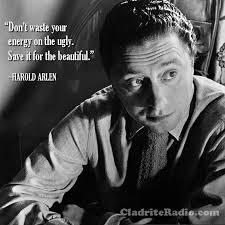
HAROLD ARLEN
(18)
| Year | Film Title | Song Title | Composer | Lyricist | Director | Introduced by | Nomination | Oscar |
| 1933 | Let’s Fall in Love | Let’s Fall in Love | Harold Arlen | Ted Kohler | David Burton | Art Jarrett and the chorus. Ann Sothern | Pre-Musicians Branch AMPAS | Pre-Musicians Branch AMPAS |
| 1939 | Love Affair | Sing My Heart | Harold Arlen | Ted Kohler | Leo McCarey | Irene Dunne | – | – |
| 1939 | At the Circus | Lydia the Tattooed Lady | Harold Arlen | Yip Harburg | Edward Buzzell | Groucho Marks | – | – |
| 1939 | The Wizard of Oz | Over the Rainbow | Harold Arlen | Yip Harburg | Victor Fleming | Judy Garland | Oscar Nomination | Oscar |
| 1939 | The Wizard of Oz | Follow the Yellow Brick Road/We’re Off to See the Wizard | Harold Arlen | Yip Harburg | Victor Fleming | Judy Garland and the Munchkin Chorus Judy Garland, Ray Bolger, Jack Haley, and Bert Lahr | – | – |
| 1939 | The Wizard of Oz | If I Only Had a Brain | Heart | Nerve | Harold Arlen | Yip Harburg | Victor Fleming | Ray Bolger Jack Haley Bert Lahr | – | – |
| 1939 | The Wizard of Oz | If I Were King of the Forest | Harold Arlen | Yip Harburg | Victor Fleming | Bert Lahr | ||
| 1939 | The Wizard of Oz | The Merry Old Land of Oz | Harold Arlen | Yip Harburg | Victor Fleming | The Emerald City Townspeople | ||
| 1939 | The Wizard of Oz | Ding Dong! The Witch is Dead | Harold Arlen | Yip Harburg | Victor Fleming | Billie Burke and the Munchkin Chorus | – | – |
| 1941 | Blues in the Night | Blues in the Night | Harold Arlen | Johnny Mercer | Anatole Litvak | William Gillespie | Oscar Nomination | – |
| 1941 | Blues in the Night | This Time the Dream’s on Me | Harold Arlen | Johnny Mercer | Anatole Litvak | Pricilla Lane | – | – |
| 1943 | Cabin in the Cotton | Happiness is a Thing Called Joe | Harold Arlen | Yip Harburg | Vincente Minnelli | Ethel Waters | Oscar Nomination | – |
| 1943 | Star Spangled Rhythm | That Old Black Magic | Harold Arlen | Johnny Mercer | George Marshall | Johnny Johnson | Oscar Nomination | – |
| 1943 | The Sky’s the Limit | My Shining Hour | Harold Arlen | Johnny Mercer | Edward H. Griffith | Fred Astaire and Joan Leslie (dubbed by Sally Sweetland) | Oscar Nomination- | – |
| 1943 | The Sky’s the Limit | One for My Baby (and One More for the Road) | Harold Arlen | Johnny Mercer | Edward H. Griffith | Fred Astaire | – | – |
| 1945 | Here Come the Waves | Ac-Cent-Tchu-Ate-the Positive | Harold Arlen | Johnny Mercer | Mark Sandrich | Bing Crosby | Oscar Nomination | _ |
| 1954 | A Star is Born | The Man That Got Away | Harold Arlen | Ira Gershwin | George Cukor | Judy Garland | Oscar Nomination | _ |
| 1963 | I Could Go On Singing | I Could Go On Singing | Harold Arlen | Yip Harburg | Ronald Neame | Judy Garland | – | – |
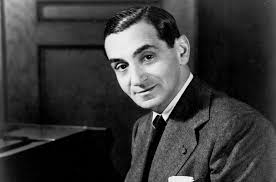
IRVING BERLIN
(23)
| Year | Film Title | Song Title | Composer | Lyricist | Director | Introduced by | Nomination | Oscar |
| 1930 | Puttin’ On the Ritz | Puttin’ On the Ritz* | Irving Berlin | Irving Berlin | Edward Sloman | Harry Richman and the chorus The first song in film by an interracial ensemble | – | – |
| 1935 | Top Hat | Cheek to Cheek | Irving Berlin | Irving Berlin | Mark Sandrich | Fred Astaire (to Ginger Rogers) | Oscar Nomination | – |
| 1935 | Top Hat | Top Hat, White Tie, and Tails | Irving Berlin | Irving Berlin | Mark Sandrich | Fred Astaire | — | – |
| 1935 | Top Hat | Isn’t This a Lovely Day (to be Caught in the Rain) | Irving Berlin | Irving Berlin | Mark Sandrich | Fred Astaire (to Ginger Rogers) | – | – |
| 1935 | Top Hat | No Strings (I’m Fancy-Free) | Irving Berlin | Irving Berlin | Mark Sandrich | Fred Astaire | – | – |
| 1935 | Top Hat | The Piccolino | Irving Berlin | Irving Berlin | Mark Sandrich | Ginger Rogers (to Fred Astaire) | – | – |
| 1936 | Follow the Fleet | Let’s Face the Music and Dance | Irving Berlin | Irving Berlin | Mark Sandrich | Fred Astaire (to Ginger Rogers) | – | – |
| 1936 | Follow the Fleet | Let Yourself Go | Irving Berlin | Irving Berlin | Mark Sandrich | Ginger Rogers | – | – |
| 1936 | Follow the Fleet | Get Thee Behind Me Satan | Irving Berlin | Irving Berlin | Mark Sandrich | Harriet Hilliard | – | – |
| 1936 | Follow the Fleet | I’m Putting All of My Eggs in One Basket | Irving Berlin | Irving Berlin | Mark Sandrich | Fred Astaire (to Ginger Rogers) | – | – |
| 1936 | On the Avenue | You’re Laughing at Me | Irving Berlin | Irving Berlin | Mark Sandrich | Dick Powell | – | – |
| 1937 | On the Avenue | Slumming on Park Avenue | Irving Berlin | Irving Berlin | Roy Del Ruth | Alice Faye | – | – |
| 1937 | On the Avenue | This Year’s Kisses | Irving Berlin | Irving Berlin | Roy Del Ruth | Alice Faye | Steppin’ Out With My Baby | – |
| 1937 | On the Avenue | I’ve Got My Love to Keep Me Warm | Irving Berlin | Irving Berlin | Roy Del Ruth | Dick Powell and Alice Faye | – | – |
| 1938 | Carefree | Change Partners | Irving Berlin | Irving Berlin | Mark Sandrich | Fred Astaire (the scene features Kay Sutton and Ginger Rogers) | Oscar Nomination | – |
| 1939 | Second Fiddle | I Poured My Heart into a Song | Irving Berlin | Irving Berlin | Sidney Lanfield | Rudy Vallee | Oscar Nomination | – |
| 1942 | Holiday Inn | White Christmas | Irving Berlin | Irving Berlin | Mark Sandrich | Bing Crosby | Oscar Nomination | Oscar Win |
| 1946 | Blue Skies | You Keep Coming Back Like a Song | Irving Berlin | Irving Berlin | Stuart Heisler | Bing Crosby | Oscar Nomination | – |
| 1948 | Easter Parade | A Couple of Swells | Irving Berlin | Irving Berlin | Charles Waters | Fred Astaire and Judy Garland | – | – |
| 1948 | Easter Parade | Steppin’ Out With My Baby | Irving Berlin | Irving Berlin | Charles Waters | Fred Astaire | _ | _ |
| 1948 | Easter Parade | Mr. Monotony** | Irving Berlin | Irving Berlin | Charles Waters | Judy Garland | – | – |
| 1954 | White Christmas | Count Your Blessings | Irving Berlin | Irving Berlin | Michael Curtiz | Bing Crosby | Oscar Nomination | – |
| 1954 | White Christmas | Sisters | Irving Berlin | Irving Berlin | Michael Curtiz | Rosemary Clooney and Vera-Ellen. Bing Crosby and Danny Kaye (Reprise) | – | – |
** “Mr. Monotony” was cut from the original print of “Easter Parade” – the tuxedo jacket, black fedora and black nylons were thought to be too risque for a movie that was set in 1912. However, the song was included as a bonus extra in the DVD edition of the film.
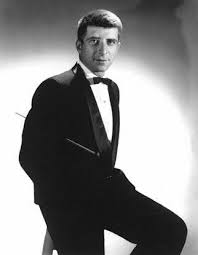
ELMER BERNSTEIN
(2)
| Year | Film Title | Song Title | Composer | Lyricist | Director | Introduced by | Nomination | Oscar |
| 1962 | Walk on the Wildside | Walk on the Wildside | Elmer Bernstein | Mack David | Edward Dmytryk | Brook Benton | Oscar Nomination | – |
| 1966 | Hawaii | My Wishing Doll | Elmer Bernstein | Mack David | George Roy Hill | Julie Andrews | Oscar Nomination | – |

RUBE BLOOM
(1)
| Year | Film Title | Song Title | Composer | Lyricist | Director | Introduced by | Nomination | Oscar |
| 1946 | Wake Up and Dream | Give Me the Simple Life | Rube Bloom | Harry Ruby | Lloyd Bacon | John Payne & June Haver | – | – |
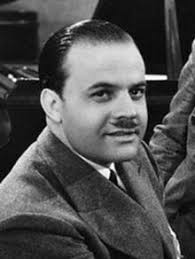
Nacio Herb Brown
(1)
| Year | Film Title | Song Title | Composer | Lyricist | Director | Introduced by | Nomination | Oscar |
| 1952 | Singing in the rain | Make ‘Em Laugh | Nacio Herb Brown | Arthur Freed | Stanley Donen and Gene Kelly | Donald O’Connor | — | — |
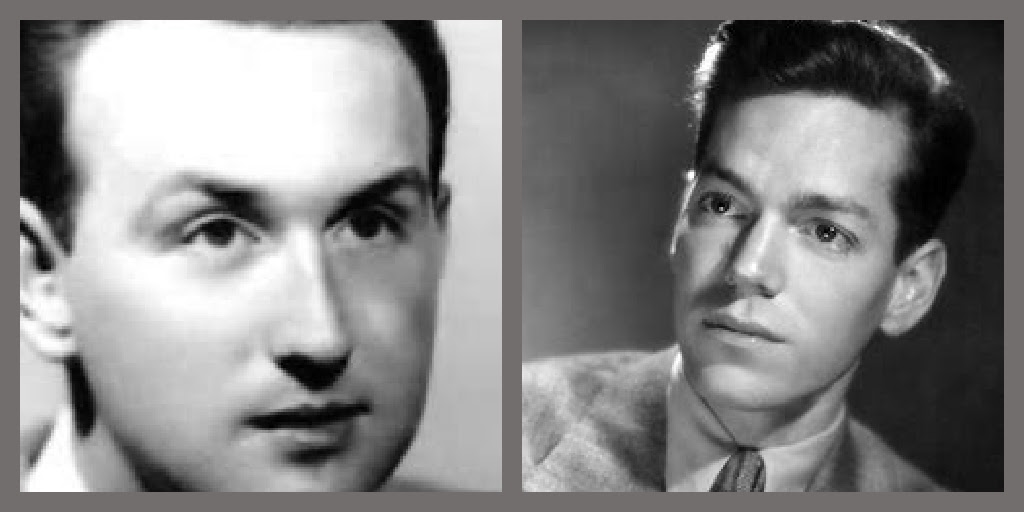
RALPH BLANE and HUGH MARTIN
(4)
| Year | Film Title | Song Title | Composer and Lyricist | Director | Introduced by | Nomination | Oscar |
| 1944 | Meet Me in Saint Louis | The Trolly Song | Ralph Blane and Hugh Martin | Vincente Minnelli | Judy Garland | Oscar Nomination | – |
| 1944 | Meet Me in Saint Louis | Have Yourself a Merry Little Christmas | Ralph Blane and Hugh Martin | Vincente Minnelli | Judy Garland | – | – |
| 1944 | Meet Me in Saint Louis | The Boy Next Door | Ralph Blane and Hugh Martin | Vincente Minnelli | Judy Garland | – | – |
| 1947 | Good News | Pass That Peace Pipe | Ralph Blane. Hugh Martin & Roger Edens | Charles Walters | Joan McCracken | Oscar Nomination | – |
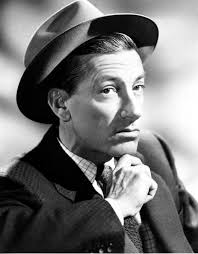
HOAGY CARMICHAEL
(2)
| Year | Film Title | Song Title | Composer | Lyricist | Director | Introduced by | Nomination | Oscar |
| 1946 | Canyon Passage | Ole Buttermilk Sky | Hoagy Carmichael | Jack Brooks | Jacques Tourneur | Hoagy Carmichael | Oscar Nomination | – |
| 1951 | Here Comes the Groom | In The Cool, Cool, Cool of the Evening | Hoagy Carmichael | Johnny Mercer | Frank Capra | Bing Crosby and Jane Wyman | Oscar Nomination | Oscar Win |
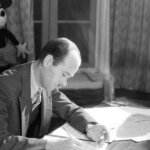
FRANK CHURCHILL
(5)
| Year | Film Title | Song Title | Composer | Lyricist | Director | Introduced by | Nomination | Oscar |
| 1937 | Snow White and the Seven Dwarves | Someday My Prince Will Come | Frank Churchill | Larry Morey | David Hand/Perce Pearce/William Cottrell/Larry Morey/Wilfred Jackson/Ben Sharpsteen | Adriana Caselotti | — | — |
| 1937 | Snow White and the Seven Dwarves | Whistle While You Work | Frank Churchill | Larry Morey | David Hand/Perce Pearce/William Cottrell/Larry Morey/Wilfred Jackson/Ben Sharpsteen | Adriana Caselotti | – | – |
| 1937 | Snow White and the Seven Dwarfs | Heigh-Ho | Frank Churchill | Larry Morey | David Hand/Perce Pearce/William Cottrell/Larry Morey/Wilfred Jackson/Ben Sharpsteen | Roy Atwell/Pinto Colvig/Billy Gilbert/Otis Harlan/Scotty Mattraw | – | – |
| 1941 | Dumbo | Baby Mine | Frank Churchill | Ned Washington | Ben Sharpsteen | Betty Noyes | Oscar Nomination | – |
| 1942 | Bambi | Love is a Song | Frank Churchill | Larry Morey | Larry Morey | Donald Noivis | Oscar Nomination | _ |
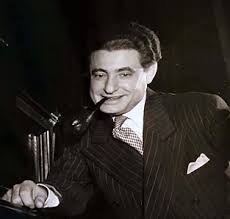
CON CONRAD
(1)
| Year | Film Title | Song Title | Composer | Lyricist | Director | Introduced by | Nomination | Oscar |
| 1934 | The Gay Divorcee | The Continental | Con Conrad | Herb Magidson | Mark Sandrich | Fred Astaire and Ginger Rogers | Oscar Nomination | Oscar Win |
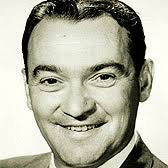
GENE DE PAUL
(4)
| Year | Film Title | Song Title | Composer | Lyricist | Director | Introduced by | Nomination | Oscar |
| 1941 | Ride ‘Em Cowboy | I’ll Remember April | Gene de Paul | Patricia Johnson & Don Raye | Arthur Lubin | Dick Foran | – | _ |
| 1942 | Keep ‘Em Flying | You Don’t Know What Love is | Gene de Paul | Don Raye | Arthur Lubin | Carol Bruce | _ | _ |
| 1943 | I Dood It | Star Eyes | Gene de Paul | Don Raye | Vincente Minnelli | Jimmy Dorsey and his Orchestra | _ | _ |
| 1943 | He’s My Guy | He’s My Guy | Gene de Paul | Don Raye | Edward F. Cline | Dick Foran and Joan Davis | _ | _ |
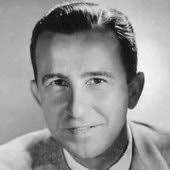
Frank De Vol
(1)
| Year | Film Title | Song Title | Composer | Lyricist | Director | Introduced by | Nomination | Oscar |
| 1964 | Hush, Hush, Sweet Charlotte | Hush, Hush, Sweet Charlotte | Frank De Vol | Mack David | Robert Aldrich | Al Martino | Oscar Nomination | – |
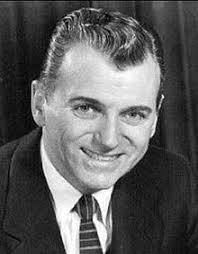
MATT DENNIS
(1)
| Year | Film Title | Song Title | Composer | Lyricist | Director | Introduced by | Nomination | Oscar |
| 1953 | Jennifer | Angel Eyes* | Matt Dennis | Earl Brent | Joel Newton | Matt Dennis | – | – |
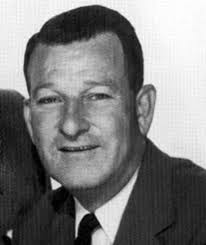
ROGER EDENS
(6)
| Year | Film Title | Song Title | Composer and Lyricist | Director | Introduced by | Nomination | Oscar |
| 1940 | Little Nellie Kelly | It’s a Great Day for the Irish | Music and lyrics by Roger Edens | Norman Taurog | Judy Garland | – | – |
| 1940 | Strike Up the Band | Our Love Affair | Roger Edens and Arthur Freed | Busbey Berkeley | Judy Garland | Oscar Nomination | – |
| 1947 | Good News | Pass That Peace Pipe | Ralph Blane, Hugh Martin & Roger Edens | Charles Walters | Joan McCracken | Oscar Nomination | – |
| 1954 | A Star is Born | Born in a Trunk | Roger Edens and Leonard Gershe | George Cukor | Judy Garland | – | – |
| 1957 | Funny Face | Think Pink! | Roger Edens and Leonard Gershe | Stanley Donen | Kay Thompson | – | – |
| 1957 | Funny Face | Bonjour Paris! | Roger Edens and Leonard Gershe | Stanley Donen | Fred Astaire, Audrey Hepburn, and Kay Thompson | – | – |
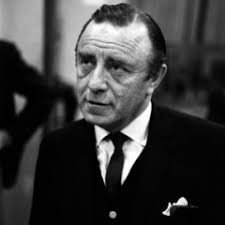
SAMMY FAIN
(5)
| Year | Film Title | Song Title | Composer | Lyricist | Director | Introduced by | Nomination | Oscar |
| 1937 | Walter Wanger’s Vogues of 1938 | That Old Feeling | Sammy Fain | Lew Brown | Irving Cummings | Virginia Verrill | Oscar Nomination | – |
| 1953 | Calamity Jane | Secret Love | Sammy Fain | Paul Francis Webster | David Butler | Doris Day | Oscar Nomination | Oscar Win |
| 1955 | Love is a Many Splendored Thing | Love is a Many Splendored Thing | Sammy Fain | Paul Francis Webster | Henry King | The Four Aces | Oscar Nomination | Oscar Win |
| 1957 | April Love | April Love | Sammy Fain | Paul Francis Webster | Henry Levin | Pat Boone | Oscar Nomination | – |
| 1962 | Tender is the Night | Tender is the Night | Sammy Fain | Paul Francis Webster | Henry King | George Greeley (pianist: uncredited) | Oscar Nomination | – |
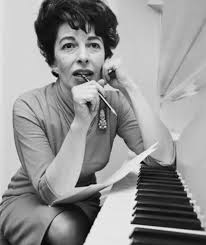
SYLVIA FINE
(1)
| YEAR | FILM | SONG | COMPOSER | LYRICIST | DIRECTOR | INTRODUCED BY | NOMINATION | OSCAR |
| 1959 | The Five Pennies | The Five Pennies | Sylvia Fine | Sylvia Fine | Melville Shavelson | Danny Kaye | Oscar Nomination | – |
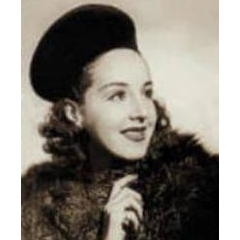
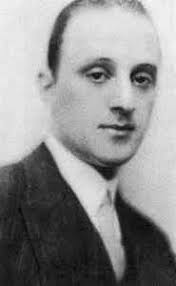
DORIS FISHER and ALLAN ROBERTS
(2)
| YEAR | FILM | SONG | COMPOSER and LYRICIST | DIRECTOR | INTRODUCED BY | Nomination | Oscar |
| 1946 | Gilda | Put the Blame on Mame | Doris Fisher and Allan Roberts | Charles Vidor | Rita Hayworth (dubbed by Anita Ellis) | _ | _ |
| 1946 | Gilda | Amado Mio | Doris Fisher and Allan Roberts | Charles Vidoe | Rita Hayworth (dubbed by Anita Ellis) | _ | _ |
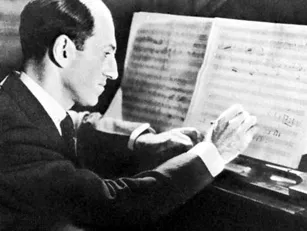
GEORGE GERSHWIN
(12)
| Year | Film Title | Song Title | Composer | Lyricist | Director | Introduced by | Nomination | Oscar |
| 1937 | Shall We Dance | They Can’t Take That Away from Me | George Gershwin | Ira Gershwin | Mark Sandrich | Fred Astaire to Ginger Rogers | Oscar Nomination | – |
| 1937 | Shall We Dance | They All Laughed (at Christopher Columbus) | George Gershwin | Ira Gershwin | Mark Sandrich | Ginger Rogers to Fred Astaire | – | – |
| 1937 | Shall We Dance | Let’s Call the Whole Thing Off | George Gershwin | Ira Gershwin | Mark Sandrich | Fred Astaire and Ginger Rogers | – | – |
| 1937 | A Damsel in Distress | I Can’t Be Bothered Now | George Gershwin | Ira Gershwin | George Stevens | Fred Astaire with backing vocals by the Stafford Sisters | – | – |
| 1937 | A Damsel in Distress | A Foggy Day (in London Town) | George Gershwin | Ira Gershwin | George Stevens | Fred Astaire | – | – |
| 1937 | A Damsel in Distress | Nice Work if You Can Get It | George Gershwin | Ira Gershwin | George Stevens | Fred Astaire | – | – |
| 1937 | Damsel in Distress | Things Are Looking Up! | George Gershwin | Ira Gershwin | George Stevens | Fred Astaire | ||
| 1938 | The Goldwyn Follies | I Was Doing All Right | George Gershwin | Ira Gershwin | George Marshall and H.C.Potter | Ella Logan (unseen – on the radio) | – | – |
| 1938 | The Goldwyn Follies | Love is Here to Stay | George Gershwin | Ira Gershwin | George Marshall and H.C.Potter | Kenny Baker | – | – |
| 1938 | The Goldwyn Follies | *Love Walked In | George Gershwin | Ira Gershwin | George Marshall and H.C.Potter | Kenny Baker | – | – |
| 1947 | The Shocking Miss Pilgrim | *Aren’t You Kinda Glad We Did? | George Gershwin | Ira Gershwin | George Seaton | Dick Haymes and Betty Grable | – | – |
| 1947 | The Shocking Miss Pilgrim | *For You, For Me, For Evermore | George Gershwin | Ira Gershwin | George Seaton | Dick Haymes and Betty Grable | – | – |
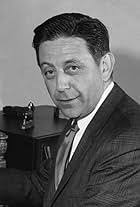
HERSCHEL BURKE GILBERT
(1)
| YEAR | FILM | SONG | COMPOSER | LYRICIST | DIRECTOR | INTRODUCED BY | NOMINATION | OSCAR |
| 1953 | The Moon is Blue | The Moon is Blue | Herschel Burke Gilbert | Sylvia Fine | Otto Preminger | The Sauter-Finegan Orchestra withSally Sweetland | Oscar Nomination | – |
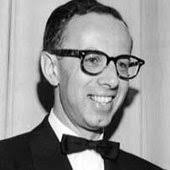
ERNEST GOLD
(1)
| Year | Film Title | Song Title | Composer | Lyricist | Director | Introduced by | Nomination | Oscar |
| 1963 | It’s a Mad, Mad, Mad, Mad World | It’s a Mad, Mad, Mad, Mad World | Ernest Gold | Mack David | Stanley Kramer | Sung by an offscreen chorus | Oscar Nomination | – |
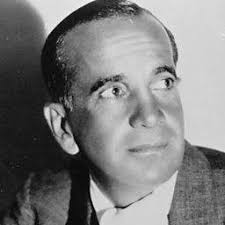
JAY GORNEY
(1)
| Year | Film Title | Song Title | Composer | Lyricist | Director | Introduced by | Nomination | Oscar |
| 1933 | Jimmy and Sally | You’re My Thrill | Jay Gorney | Sidney Clare | James Tinning | Lya Lys | Pre-Musicians Branch AMPAS | Pre-Musicians Branch AMPAS |
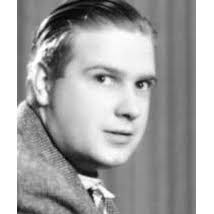
LEIGH HARLINE
(1)
| Year | Film Title | Song Title | Composer | Lyricist | Director | Introduced by | Nomination | Oscar |
| 1940 | Pinocchio | When You Wish Upon a Star | Leigh Harline | Ned Washington | Ben Sharpsteen & Hamilton Luske | Cliff Edwards | Oscar Nomination | Oscar Win |
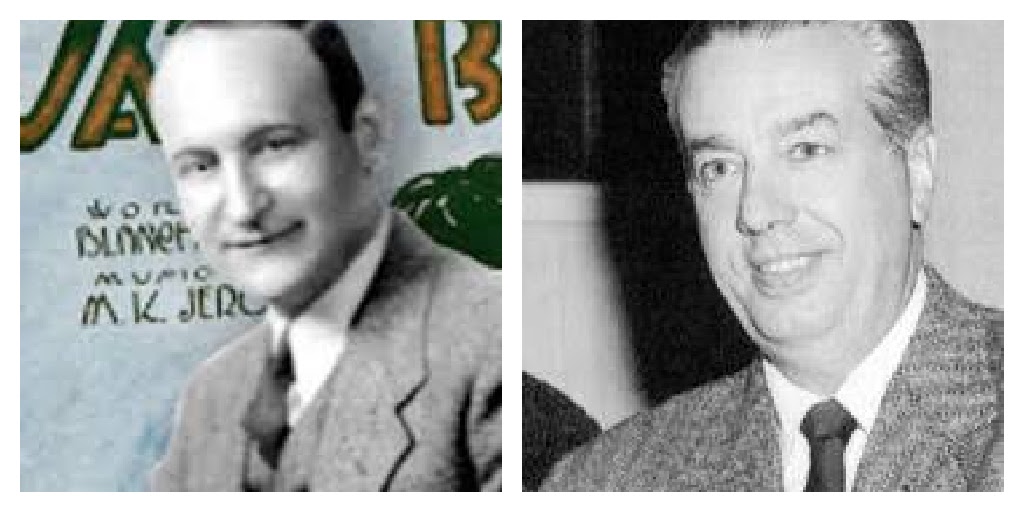
M. K. JEROME and RAY HEINDORF
(1) and (1)
| Year | Film Title | Song Title | Composer | Lyricist | Director | Introduced by | Nomination | Oscar |
| 1945 | San Antonio | Some Sunday Morning | Ray Heindorf and M.K. Jerome | Ted Kohler | David Butler | Alexis Smith | Oscar Nomination | – |

RAY HENDERSON
(1)
| Year | Film Title | Song Title | Composer | Lyricist | Director | Introduced by | Nomination | Oscar |
| 1935 | Curly Top | Animal Crackers in My Soup | Ray Henderson | Irving Caeser and Ted Kohler | Irving Cummings | Shirley Temple | – | – |
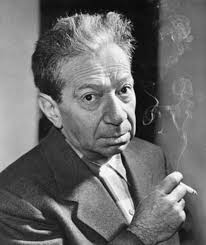
FRIEDRICH HOLLAENDER
(1)
| Year | Film Title | Song Title | Composer | Lyricist | Director | Introduced by | Nomination | Oscar |
| 1939 | Destry Rides Again | See What the Boys in the Back Room Will Have | Frederick Hollaender | Frank Loesser | George Marshall | Marlene Dietrich | _ | _ |
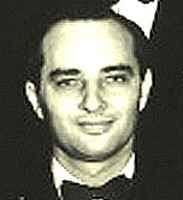
ARTHUR JOHNSTON
(3)
| Year | Film Title | Song Title | Composer | Lyricist | Director | Introduced by | Nomination | Oscar |
| 1934 | Murder at the Vanities | Cocktails for Two | Arthur Johnson | Sam Coslow | Mitchell Leisen | Carl Brisson | – | – |
| 1934 | Belle of the Nineties | My Old Flame | Arthur Johnson | Sam Coslow | Leo McCarey | Mae West | – | – |
| 1936 | Pennies from Heaven | Pennies from Heaven | Arthur Johnston | Johnny Burke | Norman Z. McLeod | Bing Crosby | Oscar Nomination | – |
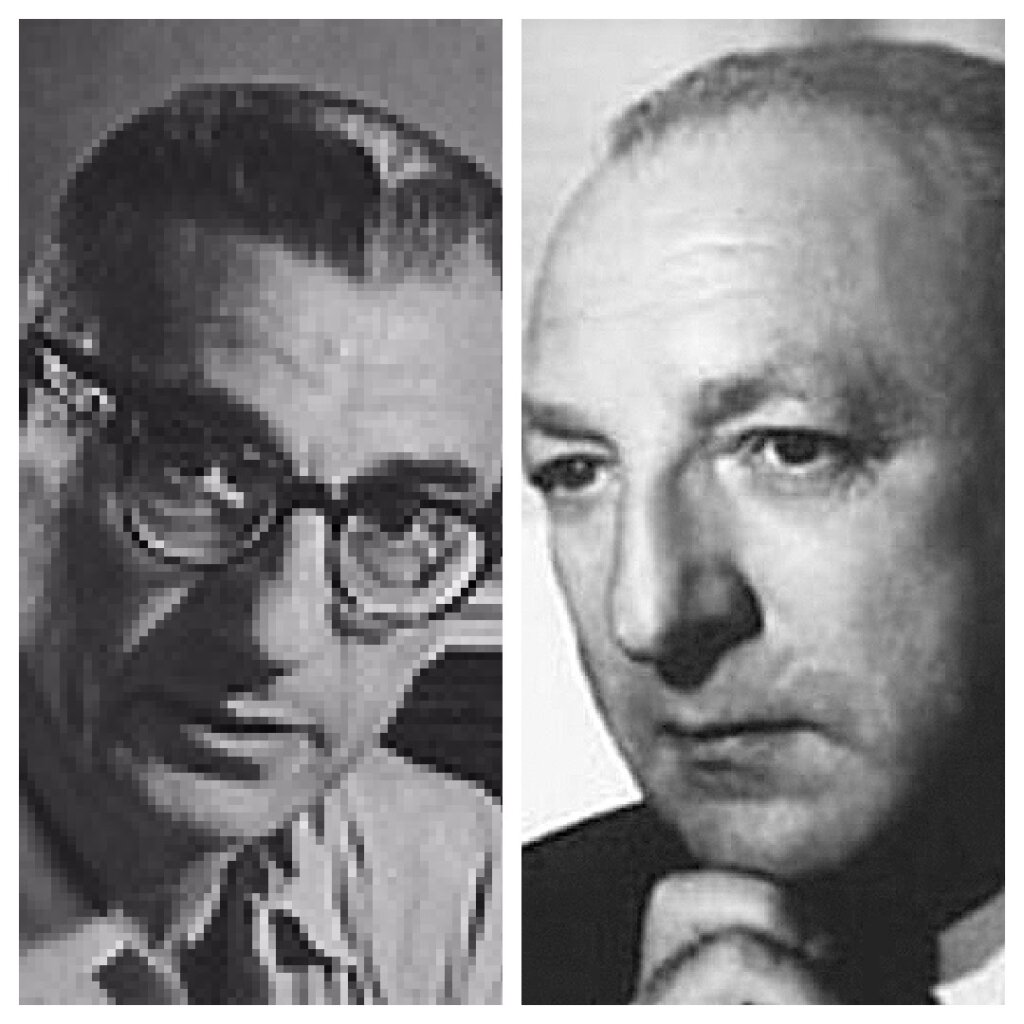
BRONISLAW KAPER and WALTER JURMANN
(2) and (1)
| Year | Film Title | Song Title | Composer | Lyricist | Director | Introduced by | Nomination | Oscar |
| 1936 | San Francisco | San Francisco | Bronislaw Kaper (with Walter Jurmann) | Gus Kahn | W.S.Van Dyke | Jeanette MacDonald | – | – |
| 1953 | Lili | Hi-Lili, Hi-Lo | Bronislaw Kaper | Helen Deutsch | Charles Waters | Leslie Caron and Mel Ferrer | – | – |
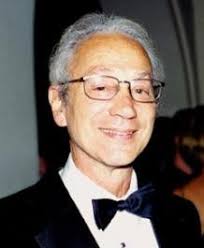
FRED KARLIN
(1)
| Year | Film Title | Song Title | Composer | Lyricist | Director | Introduced by | Nomination | Oscar |
| 1969 | The Sterile Cuckoo | Cone Saturday Morning | Fred Karlin | Dory Previn | Alan J. Pakula | The Sandpipers | Oscar Nomination | – |
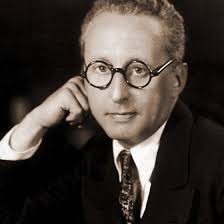
JEROME KERN
(8)
| Year | Film Title | Song Title | Composer | Lyricist | Director | Introduced by | Nomination | Oscar |
| 1935 | Roberta | Lovely to Look At | Jerome Kern | Dorothy Fields & Jimmy McHugh | William A. Seiter | Irene Dunne (Fred Astaire reprise) | Oscar Nomination | _ |
| 1935 | Roberta | I Won’t Dance* | Jerome Kern | Dorothy Fields & Jimmy McHugh | William A.Seiter | Fred Astaire and Ginger Rogers | – | _ |
| 1936 | Swing Time | The Way You Look Tonight | Jerome Kern | Dorothy Fields | George Stevens | Fred Astaire to Ginger Rogers | Oscar Nomination | Oscar win |
| 1936 | Swing Time | A Fine Romance | Jerome Kern | Dorothy Fields | George Stevens | Fred Astaire and Ginger Rogers | – | – |
| 1936 | Swing Time | Pick Yourself Up | Jerome Kern | Dorothy Fields | George Stevens | Fred Astaire and Ginger Rogers | – | – |
| 1937 | High, Wide, and Handsome | The Folks Who Live on the Hill | Jerome Kern | Oscar Hammerstein II | Rouben Mamoulian | Irene Dunne | _ | _ |
| 1941 | Lady Be Good | The Last Time I Saw Paris** | Jerome Kern | Oscar Hammerstein II | Norman Z. McLeod | Ann Sothern | Oscar Nomination | Oscar win |
| 1944 | Cover Girl | Long Ago (and Far Away) | Jerome Kern | Ira Gershwin | Charles Vidor | Rita Haworth (dubbed by Martha Mears) | Oscar Nomination | – |
Oscar Hammerstein II and Otto Harbach wrote the original lyrics (to Jerome Kern’s music) for the original version of “I Won’t Dance” as it was sung on the London stage in the musical “Three Sisters.” The play was a flop, and when lyricist Dorothy Fields was asked to write new songs for the Fred Astaire-Ginger Rogers film version of the Kern-Harbach Broadway musical “Roberta,” also named “Roberta,” she took Kern’s original melody and gave it completely new lyrics. Hammerstaien and Harbach also received credit. Fields’ frequent collaborator at the time, Jimmy McHugh, received screen credit for “Additional Lyrics.”
**NOT explicitly written for the movie (see above).
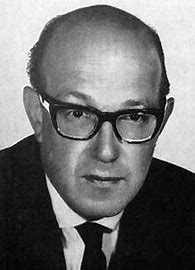
JAY LIVINGSTON
(6)
| Year | Film Title | Song Title | Composer | Lyricist | Director | Introduced by | Nomination | Oscar |
| 1948 | The Paleface | Buttons and Bows | Jay Livingston | Ray Evans | Norman Z. McLeod | Bob Hope and Jane Russell | Oscar Nomination | Oscar Win |
| 1950 | Captain Carey, U.S.A | Mona Lisa | Jay Livingston | Ray Evans | Mitchell Leisen | Les Baxter and his Orchestra | Oscar Nomination | Oscar Win |
| 1956 | The Man Who Knew Too Much | Que Sera, Sera | Jay Livingston | Ray Evans | Alfred Hitchcock | Doris Day | Oscar Nomination | Oscar Win |
| 1957 | Tammy and the Bachelor | Tammy | Jay Livingston | Ray Evans | Joseph Pevney | Debbie Reynolds | Oscar Nomination | _ |
| 1959 | The Hanging Tree | The Hanging Tree | Jay Livingston | Mack David | Delmer Daves | Marty Robbins | Oscar Nomination | _ |
| 1965 | Cat Ballou | The Ballad of Cat Ballou | Jay Livingston | Mack David | Elliot Silverstein | Tom Nardini/Michael Callan/Dwayne Hickman/Nat King Cole/Stubby Kaye | Oscar Nomination | – |
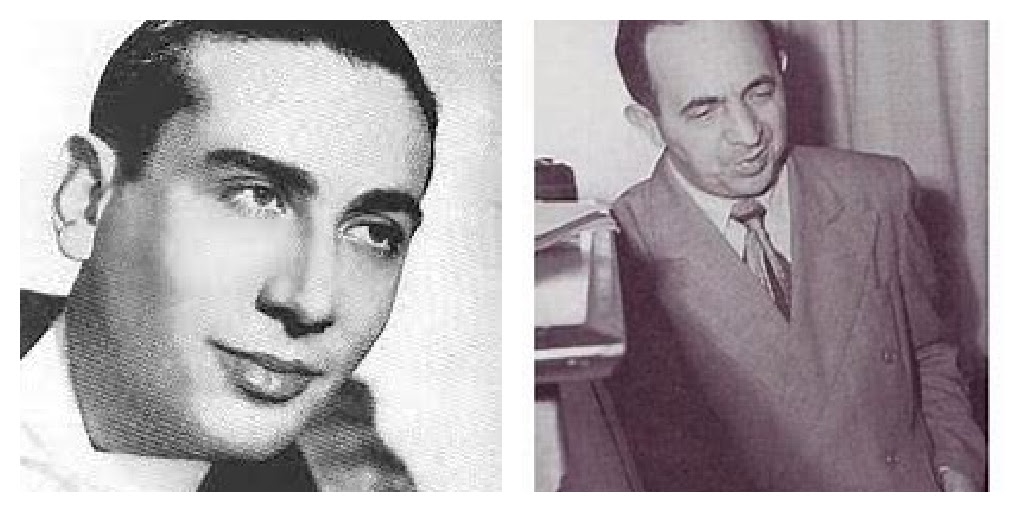
JERRY LIVINGSTON and AL HOFFMAN
(1) and (1)
| Year | Film Title | Song Title | Composer | Lyricist | Director | Introduced by | Nomination | Oscar |
| 1950 | Cinderella | Bibbidi-Bobbidi-Boo | Jerry Livingston and Al Hoffman | Mack David | Wilfred Jackson/Hamilton Luske/Clyde Geronimi | Verna Felton | Oscar Nomination | – |
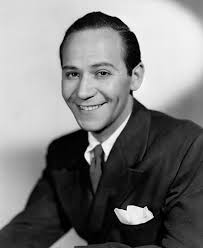
FRANK LOESSER
(2)
(For Frank Loesser as Lyricist only, please see under Frederick Hollaender, Jimmy McHugh, Arthur Schwartz)
| Year | Film Title | Song Title | Composer | Lyricist | Director | Introduced by | Nomination | Oscar |
| 1949 | Baby, It’s Cold Outside | Baby, It’s Cold Outside | Frank Loesser | Frank Loesser | Edward Buzzell | Ricardo Montalban and Esther Williams Red Skelton and Betty Garrett | Oscar Nomination | Oscar Win |
| 1952 | Hans Christian Andersen | Thumbelina | Frank Loesser | Frank Loesser | Charles Vidor | Danny Kaye | Oscar Nomination | – |
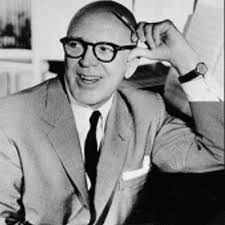
JIMMY McHUGH
(5)
(For Jimmy McHugh as Lyricist only, please see under Jerome Kern)
| Year | Film Title | Song Title | Composer | Lyricist | Director | Introduced by | Nomination | Oscar |
| 1935 | Every Night at Eight | I’m in the Mood for Love | Jimmy McHugh | Dorothy Fields | Raoul Walsh | Frances Langford | – | – |
| 1935 | Every Night at Eight | I Feel a Song Coming On | Jimmy McHugh | Dorothy Fields | Raoul Walsh | Harry Barris and his Orchestra. Alice Faye, Frances Langford and Patsy Kelly | – | – |
| 1943 | Happy Go Lucky | Let’s Get Lost | Jimmy McHugh | Frank Loesser | Curtis Bernhardt | Mary Martin | – | – |
| 1943 | Higher and Higher | I Could’t Sleep a Wink Last Night | Jimmy McHugh | Harold Adamson | Tim Whelan | Frank Sinatra | Oscar Nomination | – |
| 1943 | Higher and Higher | Lovely Way to Spend an Evening | Jimmy McHugh | Harold Adamson | Tim Whelan | Frank Sinatra | – | – |
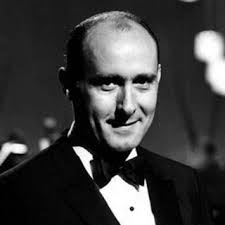
HENRY MANCINI
(5)
| Year | Film Title | Song Title | Composer | Lyricist | Director | Introduced by | Nomination | Oscar |
| 1961 | Breakfast at Tiffanys | Moon River | Henry Mancini | Johnny Mercer | Blake Edward | Audrey Hepburn | Oscar Nomination | Oscar Win |
| 1962 | The Days of Wine and Roses | The Days of Wine and Roses | Henry Mancini | Johnny Mercer | Blake Edwards | Andy Williams | Oscar Nomination | Oscar Win |
| 1963 | Charade | Charade | Henry Mancini | Johnny Mercer | Stanley Donen | The Henry Mancini Orchestra and Chorus | Oscar Nomination | – |
| 1965 | The Great Race | The Sweetheart Tree | Henry Mancini | Johnny Mercer | Blake Edwards | Natalie Wood | Oscar Nomination | – |
| 1965 | The Great Race | He Shouldn’t-A, Hadn’t-A, Oughtn’t-A Swang on Me | Henry Mancini | Johnny Mercer | Blake Edwards | Dorothy Provine | – | – |
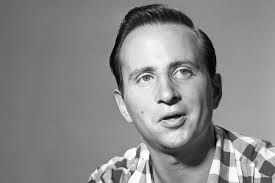
JOHNNY MANDEL
(1)
| Year | Film Title | Song Title | Composer | Lyricist | Director | Introduced by | Nomination | Oscar |
| 1965 | The Sandpiper | The Shadow of Your Smile | Johnny Mandel | Paul Francis Webster | Vincente Minnelli | Jack Sheldon | Oscar Nomination | Oscar Win |
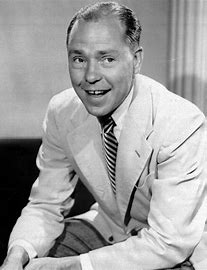
JOHNNY MERCER
(1)
(For Johnny Mercer as Lyricist only, please see under Harold Arlen, Hoagy Carmichael, Henry Mancini, Victor Schertzinger, Harry Warren, and Richard Whiting)
| Year | Film Title | Song Title | Composer | Lyricist | Director | Introduced by | Nomination | Oscar |
| 1955 | Daddy Long Legs | Something’s Gotta Give | Johnny Mercer | Johnny Mercer | Jean Negulesco | Fred Astaire | Oscar Nomination | – |
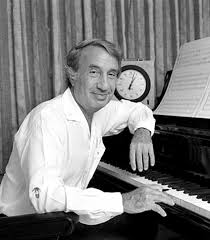
ALEX NORTH
(1)
| Year | Film Title | Song Title | Composer | Lyricist | Director | Introduced by | Nomination | Oscar |
| 1955 | Unchained | Unchained Melody | Alex North | Hy Zaret | Hall Bartlett | Todd Duncan | Oscar Nomination | – |
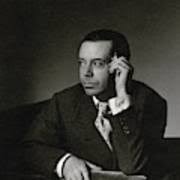
COLE PORTER
(4)
| Year | Film Title | Song Title | Composer | Lyricist | Director | Introduced by | Nomination | Oscar |
| 1936 | Born to Dance | I’ve Got You Under My Skin | Cole Porter | Cole Porter | Roy Del Ruth | Eleanor Powell | Oscar Nomination | – |
| 1943 | Something to Shout About | You’d Be So Nice to Come Home To | Cole Poster | Cole Poster | Gregory Ratoff | Janet Blair and Don Ameche | Oscar Nomination | _ |
| 1948 | The Pirate | Be A Clown | Cole Porter | Cole Porter | Vincente Minnelli | Gene Kelly and the Nicholas Brothers (REPRISE) Gene Kelly and Judy Garland | – | – |
| 1956 | High Society | True Love | Cole Porter | Cole Porter | Charles Walters | Bing Crosby and Grace Kelly | Oscar Nomination | – |
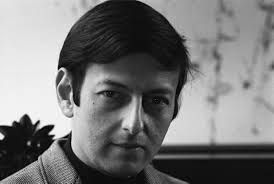
ANDRE PREVIN
(2)
| Year | Film Title | Song Title | Composer | Lyricist | Director | Introduced by | Nomination | Oscar |
| 1960 | Pepe | Faraway Part of Town | Andre Previn | Dory Previn | George Sidney | Judy Garland (voice only) | Oscar Nomination | – |
| 1962 | Two for the Seasaw | Second Chance | Andre Previn | Dory Previn | Robert Wise | Jackie Cain | Oscar Nomination | – |
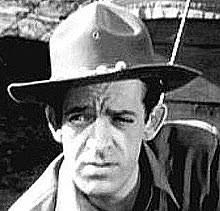
HUGHIE PRINCE
(1)
| Year | Film Title | Song Title | Composer | Lyricist | Director | Introduced by | Nomination | Oscar |
| 1941 | Buck Privates | Boogie Woogie Bugle Boy | Hughie Prince | Don Raye | Arthur Lubin | The Andrews Sisters | Oscar Nomination | – |
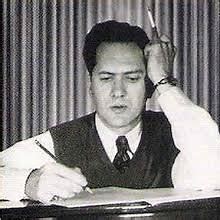
RALPH RAINGER
(1)
| Year | Film Title | Song Title | Composer | Lyricist | Director | Introduced by | Nomination | Oscar |
| 1938 | The Big Broadcast of 1938 | Thanks for the Memory | Ralph Rainger | Leo Robin | Mitchell Leisen | Bob Hope and Shirley Ross | Oscar Nomination | Oscar Win |
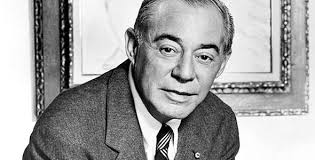
RICHARD RODGERS
(1)
| Year | Film Title | Song Title | Composer | Lyricist | Director | Introduced by | Nomination | Oscar |
| 1945 | State Fair | It might as Well Be Spring | Richard Rodgers | Oscar Hammerstein II | Walter Lang | Jeanne Crain (dubbed by Louanne Hogan) | Oscar Nomination | Oscar Win |
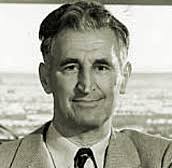
HARRY RUBY
(1)
| Year | Film Title | Song Title | Composer | Lyricist | Director | Introduced by | Nomination | Oscar |
| 1951 | The Strip | A Kiss to Build a Dream On** | Harry Ruby | Bert Kalmar & Oscar Hammerstein II | Laszlo Kardos | Louis Armstrong Mickey Rooney with William Demarest Sally Forrest Kay Brown | Oscar Nomination | – |
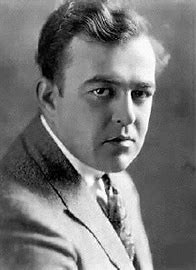
VICTOR SCHERTZINGER
(1)
| Year | Film Title | Song Title | Composer | Lyricist | Director | Introduced by | Nomination | Oscar |
| 1941 | The Fleet’s In | Tangerine | Victor Schertzinger | Johnny Mercer | Victor Schertzinger | The Jimmy Dorsey Orchestra, with vocalists Helen O’Connell and Bob Eberly | – | – |
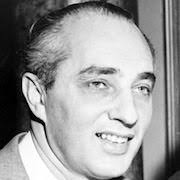
ARTHUR SCHWARTZ
(3)
| Year | Film Title | Song Title | Composer | Lyricist | Director | Introduced by | Nomination | Oscar |
| 1943 | Thank Your Lucky Stars | They’re Either Too Young or Too Old | Arthur Schwartz | Frank Loesser | David Butler | Bette Davis | Oscar Nomination | – |
| 1947 | The Time, the Place, and the Girl | A Gal in Calico | Arthur Schwartz | Leo Robin | David Butler | Dennis Morgan, Jack Carson, and Martha Vickers (dubbed by Sally Sweetland) | Oscar Nomination | – |
| 1953 | The Bandwagon | That’s Entertainment | Arthur Schwartz | Howard Dietz | Vincente Minnelli | Fred Astaire, Jack Buchanan, Oscar Levant & Nanette Fabray |
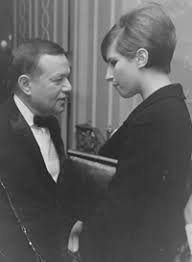
JULE STEIN
(7)
| Year | Film Title | Song Title | Composer | Lyricist | Director | Introduced by | Nomination | Oscar |
| 1942 | Youth on Parade | I’ve Heard That Song Before | Jule Stein | Sammy Cahn | Albert S. Rogell | Martha O’ Driscoll | Oscar Nomination | _ |
| 1944 | Follow the Boys | I’ll Walk Alone | Jule Stein | Sammy Cahn | A. Edward Sutherland | Dinah Shore | Oscar Nomination | – |
| 1945 | Anchors Away | I Fall in Love Too Easily | Jule Stein | Sammy Cahn | George Sidney | Frank Sinatra | Oscar Nomination | – |
| 1948 | Romance on the High Seas | It’s Magic | Jule Stain | Sammy Cahn | Michael Curtiz | Doris Day | Oscar Nomination | – |
| 1949 | It’s a Great Feeling | It’s a Great Feeling | Jule Stein | Sammy Cahn | David Butler | Doris Day | Oscar Nomination | – |
| 1954 | Three Coins in a Fountain | Three Coins in a Fountain | Jule Stein | Sammy Cahn | Jean Negulesco | Frank Sinatra | Oscar Nomination | Oscar Win |
| 1968 | Funny Girl | Funny Girl | Jule Stein | Bob Merrill | William Wyler | Barbra Streisand | Oscar Nomination | – |
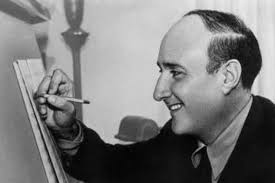
DIMITRI TIOMKIN
(4)
| Year | Film Title | Song Title | Composer | Lyricist | Director | Introduced by | Nomination | Oscar |
| 1952 | High Noon | The Ballad of High Noon | Dimitri Tiomkin | Ned Washington | Fred Zinnemann | Tex Ritter | Oscar Nomination | Oscar Win |
| 1956 | Friendly Persuasion | Friendly Persuasion | Dimitri Tiomkin | Paul Francis Webster | William Wyler | Pat Boone | Oscar Nomination | – |
| 1957 | Wild is the Wind | Wild is the Wind | Dimitri Tiomkin | Ned Washington | George Cukor | Johnny Mathis | Oscar Nomination | – |
| 1961 | Town Without Pity | Town Without Pity | Dimitri Tiomkin | Ned Washington | Gottfried Reinhardt | Gene Pitney | Oscar Nomination | _ |
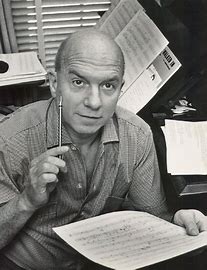
JIMMY VAN HEUSEN
(18)
| Year | Film Title | Song Title | Composer | Lyricist | Director | Introduced by | Nomination | Oscar |
| 1941 | Road to Zanzibar | It’s Always You | Jimmy Van Heusen | Johnny Burke | Victor Schertzinger | Bing Crosby (to Dorothy Lamour) | – | – |
| 1942 | Road to Morocco | Moonlight Becomes You | Jimmy Van Heusen | Johnny Burke | David Butler | Bing Crosby (to Dorothy Lamour) | – | – |
| 1943 | Dixie | Sunday, Monday, or Always | Jimmy van Heusen | Johnny Burke | Edward Sutherland | Bing Crosby | – | – |
| 1943 | And the Angels Sing | It Could Happen to You | Jimmy Van Heusen | Johnny Burke | George Marshall | Dorothy Lamour | – | – |
| 1944 | Belle of the Yukon | Like Someone in Love | Jimmy Van Heusen | Johnny Burke | William A. Seiter | Dinah Shore | – | – |
| 1944 | Going My Way | Swinging on a Star | Jimmy Van Heusen | Johnny Burke | Leo McCarey | Bing Crosby | Oscar Nomination | Oscar Win |
| 1945 | The Bells of Saint Mary’s | Aren’t You Glad You’re You | Jimmy Van Heusen | Johnny Burke | Leo McCarey | Bing Crosby | Oscar Nomination | _ |
| 1946 | Road to Utopia | Personality | Jimmy Van Heusen | Johnny Burke | Hal Walker | Dorothy Lamour | – | – |
| 1947 | The Road to Rio | But Beautiful | Jimmy van Heusen | Johnny Burke | Norman Z. McLeod | Bing Crosby (to Dorothy Lamour) | – | – |
| 1955 | The Tender Trap | (Love Is) The Tender Trap | Jimmy Van Heusen | Sammy Cahn | Charles Walters | Debbie Reynolds & Frank Sinatra (Separately) | Oscar Nomination | – |
| 1957 | The Joker is Wild | All the Way | Jimmy Van Heusen | Sammy Cahn | Charles Vidor | Frank Sinatra | Oscar Nomination | Oscar Win |
| 1959 | A Hole in the Head | High Hopes | Jimmy Van Heusen | Sammy Cahn | Frank Capra | Frank Sinatra & Eddie Hodges | Oscar Nomination | Oscar Win |
| 1960 | High Time | The Second Time Around | Jimmy Van Heusen | Sammy Cahn | Blake Edwards | Bing Crosby with Henry Mancini and his Orchestra | Oscar Nomination | – |
| 1960 | Ocean’s 11 | Ain’t That a Kick in the Head | Jimmy Van Heusen | Sammy Cahn | Lewis Milestone | Dean Martin | _ | _ |
| 1961 | Pocket Full of Miracles | Pocket Full of Miracles | Jimmy Van Heusen | Sammy Cahn | Frank Capra | Sung offscreen by an unidentified choir during the opening credits | Oscar Nomination | – |
| 1963 | The Bells of Saint Mary’s | Call Me Irresponsible | Jimmy Van Heusen | Sammy Cahn | George Marshall | Jackie Gleason | Oscar Nomination | Oscar Win |
| 1964 | Robin and the 7 Hoods | My Kind of Town | Jimmy Van Heusen | Sammy Cahn | Gordon Douglas | Frank Sinatra | Oscar Nomination | – |
| 1967 | Thoroughly Modern Millie | Thoroughly Modern Millie | Jimmy Van Heusen | Sammy Cahn | George Roy Hill | Julie Andrews | Oscar Nomination | – |
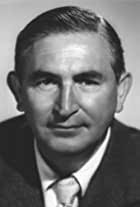
HARRY WARREN
(20)
| Year | Film Title | Song Title | Composer | Lyricist | Director | Introduced by | Nomination | Oscar |
| 1933 | 42nd Street | 42nd Street | Harry Warren | Al Dubin | Lloyd Bacon | Ruby Keeler, Dick Powell, and the ensemble | Pre-Musicians Branch AMPAS | Pre-Musicians Branch AMPAS |
| 1933 | 42nd Street | Shuffle Off to Buffalo | Harry Warren | Al Dubin | Lloyd Bacon | Ruby Keeler and Clarence Nordstrom REPRISE Ginger Rogers, Una Merkel, and the Chorus | Pre-Musicians Branch AMPAS | Pre-Musicians Branch AMPAS |
| 1933 | 42nd Street | You’re Getting to Be a Habit with Me | Harry Warren | Al Dubin | Lloyd Bacon | Bebe Daniels | Pre-Musicians Branch AMPAS | Pre-Musicians Branch AMPAS |
| 1933 | Roman Scandals | Keep Young and beautiful | Harry Warren | Al Dubin | Frank Tuttle | Eddie Cantor and the Chorus | Pre-Musicians Branch AMPAS | Pre-Musicians Branch AMPAS |
| 1933 | Gold Diggers of 1933 | We’re in the Money | Harry Warren | Al Dubin | Mervyn LeRoy | Ginger Rogers and the Chorus | Pre-Musicians Branch AMPAS | Pre-Musicians Branch AMPAS |
| 1934 | Moulin Rouge | The Boulevard of Broken Dreams | Harry Warren | Al Dubin | Sidney Lanfield | Constance Bennett | – | – |
| 1934 | Dames | I Only Have Eyes for You | Harry Warren | Al Dubin | Ray Enright | Dick Powell | – | – |
| 1935 | Broadway Gondolier | Lulu’s Back in Town | Harry Warren | Al Dubin | Lloyd Bacon | Dick Powell | – | – |
| 1935 | Gold Diggers of 1935 | The Lullaby of Broadway | Harry Warren | Al Dubin | Busby Berkeley | Winifred Shaw | Oscar Nomination | Oscar Win |
| 1937 | Melody for Two | September in the Rain | Harry Warren | Al Dubin | Louis King | James Melton | – | – |
| 1938 | Going Places | Jeepers Creepers | Harry Warren | Johnny Mercer | Ray Enright | Louis Armstrong | Oscar Nomination | _ |
| 1938 | Hard to Get | You Must Have Been a Beautiful Baby | Harry Warren | Johnny Mercer | Ray Enright | Dick Powell | – | – |
| 1941 | Sun Valley Serenade | Chattanooga Choo Choo | Harry Warren | Mack Gordon | H.Bruce Humberstone | Glenn Miller and his Orchestra with The Modernaires, Dorothy Dandridge, and the Nicholas Brothers. | Oscar Nomination | – |
| 1941 | Sun Valley Serenade | At Last | Harry Warren | Mack Gordon | H.Bruce Humberstone | Glenn Miller and his Orchestra Pat Friday and John Payne | _ | _ |
| 1942 | Orchestra Wives | I’ve Got A Girl in Kalamazoo | Harry Warren | Mack Gordon | Archie Mayo | Glenn Miller and his Orchestra With the Nicholas Brothers | Oscar Nomination | – |
| 1943 | Hello, Frisco, Hello | You’ll Never Know | Harry Warren | Mack Gordon | H. Bruce Humberstone | Alice Faye | Oscar Nomination | Oscar Win |
| 1945 | Diamond Horseshoe | The More I See You | Harry Warren | Mack Gordon | George Seaton | Dick Haymes | – | – |
| 1946 | The Harvey Girls | On The Atchison, Topeka, and the Santa Fe | Harry Warren | Johnny Mercer | George Sidney | Judy Garland | Oscar Nomination | Oscar Win |
| 1953 | The Caddy | That’s Amore | Harry Warren | Jack Brooks | Norman Taurog | Dean Martin | Oscar Nomination | _ |
| 1957 | An Affair to Remember | An Affair to Remember | Harry Warren | Harold Adamson & Leo McCarey | Leo McCarey | Vic Damone | Oscar Nomination | – |
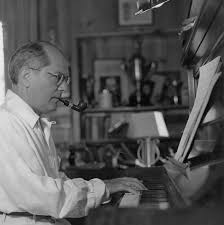
RICHARD WHITING
(3)
| Year | Film Title | Song Title | Composer | Lyricist | Director | Introduced by | Nomination | Oscar |
| 1934 | Bright Eyes | On the Good Ship Lollipop | Richard Whiting | Sidney Clare | David Butler | Shirley Temple | – | – |
| 1937 | Hollywood Hotel | Hooray for Hollywood | Richard Whiting | Johnny Mercer | Busby Berkeley | Frances Langford and Johnnie Davis with the Benny Goodman Orchestra | – | – |
| 1937 | Ready, Willing, and Able | Too Marvelous for Words | Richard Whiting | Johnny Mercer | Ray Enright | Winifred Shaw and Ross Alexander | – | – |
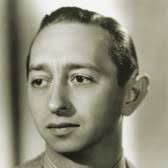
ALLIE WRUBEL
(1)
| YEAR | FILM | SONG | COMPOSER | LYRICIST | DIRECTOR | INTRODUCED BY | Nomination | Win |
| 1947 | Song of the South | Zip-a-Dee-Doo-Dah | Allie Wrubel | Ray Gilbert | Harve Foster (Live Action) Wilfred Jackson (Animation) | James Baskett | Oscar Nomination | Oscar Win |
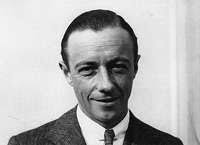
VINCENT YOUMANS
(1)
| Year | Film Title | Song Title | Composer | Lyricist | Director | Introduced by | Nomination | Oscar |
| 1934 | Flying Down to Rio | Carioca | Vincent Yeomans | Edward Eliscu and Gus Kahn | Thornton Freeland | Alice Gentle, Movita Castaneda, and Etta Moten | Oscar nomination | – |
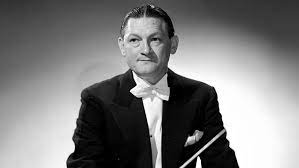
VICTOR YOUNG
(3)
| Year | Film Title | Song Title | Composer | Lyricist | Director | Introduced by | Nomination | Oscar |
| 1945 | Love Letters | Love Letters | Victor Young | Edward Heyman | William Dieterle | Dick Haymes | Oscar Nomination | – |
| 1949 | My Foolish Heart | My Foolish Heart | Victor Young | Ned Washington | Mark Robson | Martha Mears | Oscar Nomination | – |
| 1956 | Written on the Wind | Written on the Wind | Victor Young | Sammy Cahn | Douglas Sirk | The Four Aces | Oscar Nomination | – |
PLEASE SEE THE COMPANION ARTICLE – The Great Lyricists of Hollywood’s Golden Age.
https://thebrownees.net/the-great-lyricists-of-hollywoods-golden-age/
Blue Moon (2025) Film Review B+ – TheBrownees
Bono: Stories of Surrender is one of the Great Concert Movies (2025) A- TheBrownees
Top Hat (1935) Film Review A+ – TheBrownees
The Wizard of Oz (1939) Film Review A- TheBrownees
Casablanca (1942-1943) Here’s Looking at You Kid! A+ – TheBrownees
Meet Me in St. Louis (1944) Minnelli’s masterpiece and Garland’s Best Film A+ – TheBrownees
Laura (1944) Film Review A+ – TheBrownees
The Uninvited (1944) Film Review B- TheBrownees
Young Man with a Horn (1950) Film Review B – TheBrownees
Gentlemen Prefer Blondes (1953) Film Review B+ – TheBrownees
Calamity Jane (1953) Film Review B – TheBrownees
Written on the Wind (1956) Film Review B+ – TheBrownees
Funny Face (1957) Film Review A+ – TheBrownees
Some Like it Hot (1959) Film Review A+ – TheBrownees
My Fair Lady (1964) Cukor’s Late-Career Triumph A+ – TheBrownees


























